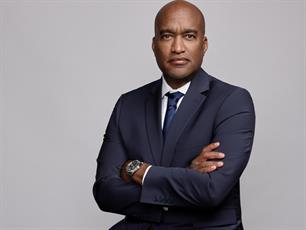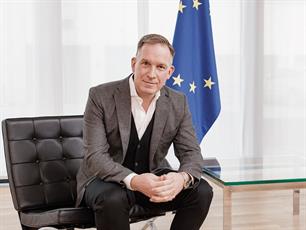Paul Holmes 28 May 2002 // 11:00PM GMT
The cozy relationship between Enron and the Bush administration, and the fact that Enron was such a large campaign contributor (to both parties) is already bringing renewed pressure for campaign finance reform, and is raising broader issues about the future of public affairs—with heightened public cynicism about the role of corporations in formulating public policy a likely outcome.
“Enron will cause politicians to more carefully scrutinize those who curry political favor,” says Tom Goodwin, president of Step One Communications. “Politicians who assert that Enron didn’t ‘get’ anything in exchange for its money are disingenuous. It did. It got to be left alone. The flow of cash anesthetized Washington to concerns that would have arisen had congressional and regulatory oversight responsibilities not lapsed so thoroughly.”
The fact that campaign finance reform advocates were able to force a vote in the House “suggests that its day is near,” says Goodwin. “Even if opponents succeed in delaying reform this spring, this issue continues an inexorable, steady trend upward. Do not be surprised if George W. Bush ultimately facilitates its enactment—much as ‘only Nixon could have opened China.’”
But for now at least the administration is stonewalling, refusing to disclose details of its dealings with Enron, using executive privilege as a constitutional protection against self-incrimination. It is unlikely that the Enron scandal will significantly harm the president’s sky-high approval ratings as long as he continues to wage his war on terrorism, but the administration’s recalcitrance will undoubtedly drag the scandal out longer and focus more attention on the kind of deals that get done behind closed doors by corporate lobbyists.
“I don’t believe the Enron scandal signals the end of public affairs in our time,” says Craig Martin, managing director of the Washington, D.C., office of Ruder Finn. “Enron isn’t the first company to throw major dollars and resources at politicians, and it won’t be the last. In this case, however, there are two converging influences that are likely to bring about a change in public affairs practices: first, an angry and increasingly empowered constituent base; and second, an ill-timed claim of executive privilege. Because of these factors, I think it will as a catalyst for a change in emphasis and transparency within the profession.”
So many investors—including Enron employees—placed their faith in the company, that “if these is even a hint that back-room politics created an environment for Enron’s alleged deceptions, these constituents will cry out for accountability and the pressure will be on political types to demonstrate their purity and a reasonable separation from corporate America.”
At the same time, the media will ride the story of the administration’s ties to the energy industry “until it “collapses from exhaustion.” For that reason, Martin says, “the administration has chosen this inopportune moment to insist on its rights to engage in conversations with corporate executives out of the earshot of the public. As constitutionally pure as the motives may be, the longer the administration sticks to its guns on executive privilege, the more the public perception of undue influence is reinforced, and the greater the pressure will eventually be for more transparency in future interactions between industry and government.
If campaign finance reform measures are enacted, that could mean a windfall for public affairs practitioners, some observers suggest.
“Clearly the calls for increased transparency and stricter regulation will only grow louder,” says Jody Powell, president of Weber Shandwick Worldwide’s Powell Tate subsidiary. “The debate over specifics in these areas will involve a host of interests with a need for legal, government relations, and public affairs counsel.” And if there campaign finance reform is enacted and it does decrease the impact of cash contributions on the policy-making process, good public affairs counsel “will become even more valuable to those who wish to make their views known on matters that affect them.”
But the mix of public affairs business will be different, with greater emphasis on building grassroots support and less on direct access.
“The future of public affairs lies in focusing on those very folks whose retirement savings went up in flames along with Enron,” says Martin. “Specifically, grassroots mobilization and constituent-focused outreach will play an even more critical role in public affairs—advancing on pure government relations and traditional lobbying. Backroom discussions will continue to be a part of the public affairs mix, but will no longer be the focal point of the public affairs strategy. There will be a new sense of transparency in the conduct of public affairs, and thus a greater degree of public involvement.
“Messaging will need to change as well. The argument that ‘what’s good for General Motors is good for the country’ won’t work today, and will need to be expressed in more populist terms.”
In this climate, corporations need to make the case that they do have a legitimate role to play in formulating public policy, regardless of the public’s cynicism about that role.
“The right to try to influence public policy is enshrined in our constitution,” says Powell. “It is one of the more important rights we enjoy. We can and should be attentive to the need to correct abuses and inequities. The attempts of citizens to influence public policy, particularly through open public debate—read public affairs—is a pretty good definition of the democratic process.”
Media relations
While Enron soared, the mainstream business media stood on the sidelines cheering, apparently having abandoned its historical watchdog role in its enthusiasm for the bull economy. A Fortune magazine survey hailed Enron as the most innovative company in the country for six consecutive years, while The New York Times called it “a model for the new American workplace.” Business Week examined one of its pioneering ventures and judged the risk to be “remarkably small.” And as recently as August, when fissures in the facade at Enron were already apparent, the Houston Chronicle opined: “Nothing major appears to be wrong at Enron.”
There has been plenty of criticism of media gullibility: “When something this big comes as this much of a shock, it suggests that something has been very wrong with the journalism,” says Robert Lichter, co-director of the Washington-based Center for Media and Public Affairs.
But the majority of public relations people are surprisingly uncritical of the media’s role in the Enron fiasco.
“It’s really not quite correct to say that journalists were taken in,” says Peter Hirsch, who heads the corporate practice at Porter Novelli International. “Everyone—with the exception of some Andersen folks, perhaps—was taken in.”
Lynn Casey, president of Twin Cities public relations firm Padilla Speer Beardsley, agrees. “My experience is that many journalists are in the same position we’re in,” she says “It’s difficult to understand the esoterics of corporate financial management, much less keep up with myriad changes. We all need to get smarter and stay more vigilant.”
But there are some questions about whether the amount of money Enron spent on advertising had the same effect as the money it lavished on the political realm, encouraging media outlets to look the other way or at least to give the company the benefit of the doubt.
“A related question that I haven’t seen asked is whether Enron’s corporate image expenditures with major business publications might be a little bit connected to the media’s enthusiasm for Enron’s ‘success story,’” says Hirsch.
Enron didn’t just spend money on advertising. It also paid large sums to several prominent journalists—$100,000 to Weekly Standard editor William Kristol, $50,000 to National Review Online columnist Lawrence Kudlow and New York Times columnist Paul Krugman, and $30,000 to frequent Wall Street Journal contributor Peggy Noonan—and given the company’s behavior it’s hard to imagine it made these payments without expecting something in return.
Under the circumstances, many media relations professionals expect the media to be a lot less trusting of corporate communications.
“I’m not sure whether journalists are going to be asking tougher questions but certainly for the short term they are going to be asking questions they haven’t frequently asked before about corporate
governance, audit committees, and compensation committees,” says Hirsch. “But it will die down because unless there are additional scandals it makes for rather dull reading.
“I don’t think, with a few exceptions, journalists have the time or the training to see what accountants and financial analysts couldn’t see
Many people track the lack of confidence in American institutions back to the Watergate scandal. Some observers believe the Enron scandal could have a similar impact on confidence in both the business community and the media.
“It is already obvious from coverage of situations such as Williams and Tyco,” says Robert Mead, president of Gavin Anderson & Company. “The collapse of the Enron bubble could be to the financial media what Watergate was to the political press—an embarrassing wakeup call and catalyst for a return to healthy skepticism.”
It might also signal a change in the way corporate PR professionals handle the media—forcing greater candor and enhanced transparency before bad news breaks.
“When all the dust has settled, one impact on our profession may be a farewell to that treasured tenet of media relations: never volunteer the negative,” says Tom Goodwin, president of Step One Communications. “We’ve all learned it in media training: deliver your message and stay away from your weak points. If somebody brings up something bad, use a ‘defensive message’ to deal with it and then quickly bridge back to your core message.
“In recent years, public affairs professionals increasingly have ignored this rule. Members of Congress and their staffs expect—and demand—that lobbyists and PA pros tell them, up-front, not only the benefits of a certain policy action, but also the downside. Such up-front ‘defensive messaging’ contributes to what is known as ‘political cover.’
“As Washington virtuously roots out the blame for Enron, ‘political cover’ will take on new and important meaning for our colleagues in the financial, business and corporate PR sectors too.”
Corporate Social Responsibility
Not surprisingly, President Bush elected not to use the word Enron anywhere in his state of the union address last week, but he did make reference to the scandal, albeit obliquely, when he told listeners, “Corporate America must be made more accountable to employees and shareholders and held to the highest standards of conduct.”
If there was any doubt in the minds of corporate leaders that ethics and social responsibility have moved closer to the top of the national agenda, that reference should have removed it.
“At its core, CSR is about business ethics and the Enron scandal has served to magnify the public’s general mistrust of big business,” says Gavin Power, who heads the recently-formed corporate social responsibility group at Ketchum. “Tomorrow’s corporate leaders will be those that pursue responsible commercial success along the triple bottom line—financial performance, environmental stewardship and social accountability.”
“I think companies will need to communicate much more directly to their core stakeholder groups about their values and ethics in business,” says Kathy Savitt, president of Seattle-based MWW/Savitt. “This will necessitate not only the simple formation and iteration of each company’s code of conduct, but also more specific strategies in the arenas of social equity and resource sustainability.”
Enron, of course, bragged about its values at its website, and articulated them forcefully within the company, which suggests that any company that talks the talk about ethics better be able to demonstrate it is also walking the walk.
Communications around corporate citizenship and corporate social responsibility will become more difficult, says Carol Cone, president of the Boston-based public relations firm that bears her name. “Walking the talk and gaining extensive proof points will be necessary before communication can take place with credibility. Companies must carefully target their audiences, and narrowcast their programs and results, before broad scale announcements.”
The impact will not be the same on all companies, Cone says.
“First, those who are socially responsible, and have active programs to engage their internal and external stakeholders—companies like Home Depot, Target, J & J, and Timberland—will be under greater scrutiny regarding their efforts. Yet, because their philosophies emanate from their values, they will continue on their previous paths.
“Second, you have those who are embarking on portions of the CSR spectrum, who describe their efforts—for example participation in their plant communities, causes associations, appropriate employee policies— as ‘corporate citizenship.’ These organizations want to do the right thing but have not grasped the vast amount of resources, and redirection of operating policies that will be necessary to truly become a socially responsible company.
“And finally, you have the laggards, who have few, if any, programs that fall into any of the corporate citizenship or CSR arenas.
“Enron and the massive scrutiny on ethics and integrity in business should impact the second tier of companies most of all. I believe many will analyze their efforts and embark on more comprehensive corporate citizenship efforts, internally and externally.”
While many companies are already looking at their ethics policies and other CSR activities, it is possible that the Enron scandal could lead to greater pressure for government involvement in mandating social responsibility—pressure that has already been felt in several European countries, where social and environmental reporting, for example, is much more common than it is here.
“In the first instance, I think Enron will fuel calls for more corporate disclosure and transparency,” says Joe Keefe, president of New Circle Communications. “I think Enron underscores the fundamental disconnect at the heart of today’s dominant business model, that corporations are too often managed in the interest of a small group of inside shareholders, to the detriment not only of other stakeholders but a majority of shareholders as well.
“Corporate high flyers like Enron typically make a handful of insiders enormously rich, but too often this comes at the expense of employees, communities and the public. The fruits of the long bull market of the last two decades were so unevenly distributed that the gap between the rich and poor in the U.S. is now greater than at any time since the 1930s. We need to seriously examine why, during the longest bull market in our nation’s history, the successes of corporate America so often failed to benefit average citizens.”
Keefe, for one, would not be surprised to see regulation.
“I think Enron, finally, will fuel calls for more regulation—legislating corporate social responsibility, as opposed to waiting on corporations to adopt voluntary standards. Just as the first Gilded Age gave way to the Progressive Era, perhaps our New Gilded Age must give way to a period of reform that holds corporations more accountable for their actions, and makes the marketplace work again for average Americans.”


































.jpg)






.tmb-135x100.png)










